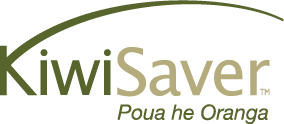 Ngā tangohanga KiwiSaver i ngā utu mahi ki ngā kaimahi
KiwiSaver deductions from employee pay
Ngā tangohanga KiwiSaver i ngā utu mahi ki ngā kaimahi
KiwiSaver deductions from employee pay
Each time you pay salary or wages to an employee in a KiwiSaver scheme or a complying fund you deduct contributions from their pay. This deduction is your employee's contribution to their scheme.
KiwiSaver employee contribution rates
The rate you deduct employee contributions can be either 3%, 4%, 6%, 8% or 10% of their gross pay. Your employee tells you which rate to use on their KiwiSaver deduction form – KS2.
If an employee does not choose a contribution rate, use the default rate of 3%.
How gross pay affects KiwiSaver employee deductions
You need to know what payments to include in gross pay for KiwiSaver or complying fund. It helps calculate your employee’s deduction and your contribution.
Calculating your KiwiSaver or complying fund contributions is different to other PAYE calculations.
Gross pay for KiwiSaver schemes and complying funds
When to start deducting KiwiSaver contributions
You start deducting KiwiSaver contributions for:
- those employees you’ve automatically enrolled from their first pay
- employees who've chosen to opt into KiwiSaver from their first pay after you’re notified. (That's notified by us or your employee.)
Not starting employee KiwiSaver deductions
If you have not started deductions for an employee, and they're not on a savings suspension, we'll let you know.
We'll let you know you must start deductions for employees:
- you should've enrolled
- who are already in KiwiSaver.
You do not need to backdate deductions for them.
We may penalise you if do not start deductions after we've notified you.
When to stop KiwiSaver deductions from employee pay
Stop deducting KiwiSaver contributions for an employee when they give you either a:
- savings suspension notice approved by us
- Non-deduction notice - KS51 (because they’re eligible to withdraw their savings).
Suspending KiwiSaver deductions and contributions
Changing employee KiwiSaver deduction rates
Employees can ask you to change their contribution rate in writing or by completing a KiwiSaver deduction form (KS2).
Alternatively, they can request a rate change by contacting their KiwiSaver provider or submitting a contribution rate change request to us through myIR. We will send you a letter with a list of contribution rate changes requested through scheme providers or myIR on a weekly basis.
They can only change their contribution rate once every 3 months unless you agree to a shorter timeframe.
Update employee deduction rate for KiwiSaver
Payments to retired employees
Some ongoing payments you make to your retired employees are not counted as gross pay. This includes these periodic payments:
- pension
- retiring allowance
- superannuation
- other allowance or annuity relating to their past employment.
Employees with special circumstances
There are situations that may affect an employee's deduction and your employer contributions. For example, injured employees or those on paid parental leave.

